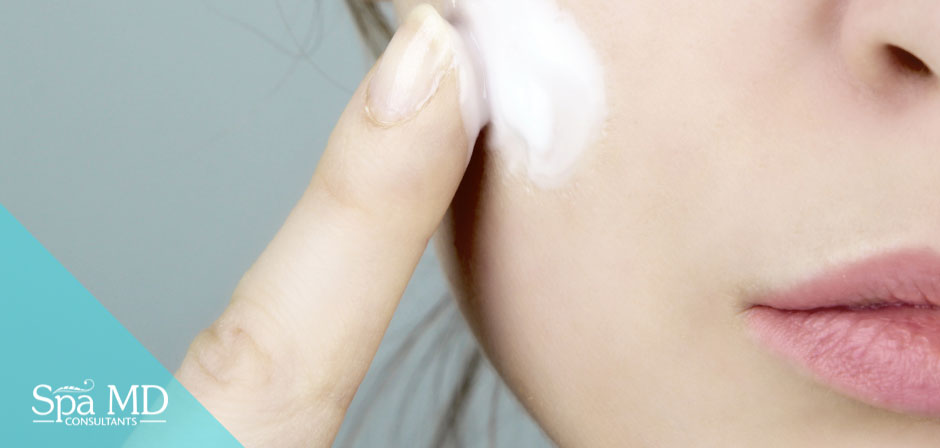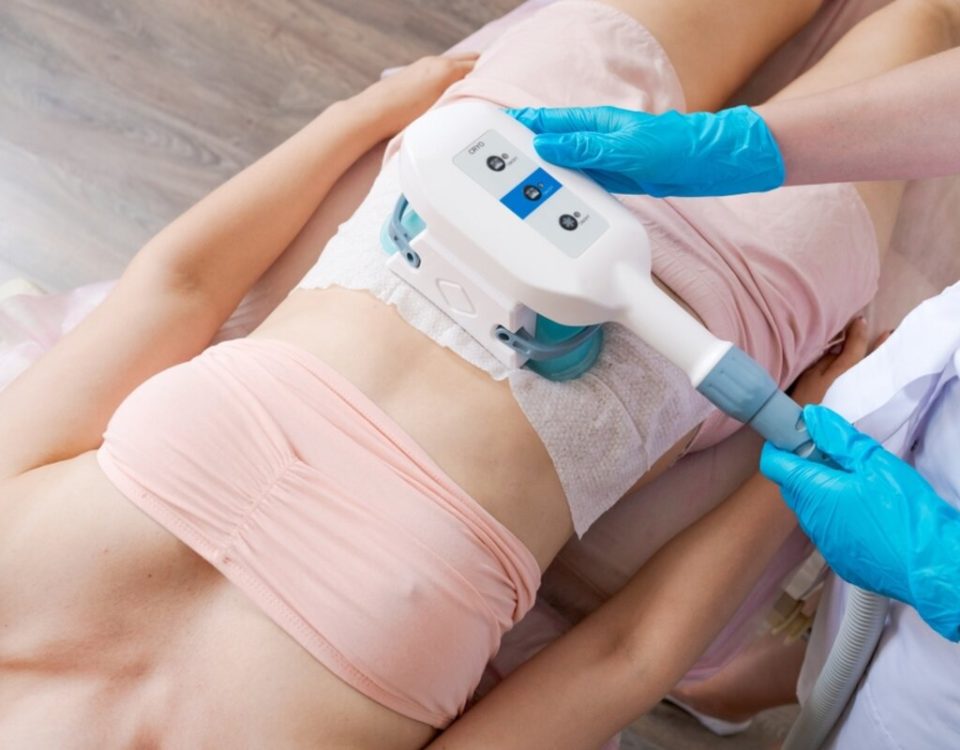
Why You Need To Wear Sunscreen In The Winter
September 27, 2019
How to Get Rid of My Double Chin (Kybella vs. CoolSculpting)
October 30, 2019Winter skincare may vary depending on where you live, but those in cold or windy climates know protecting your skin is essential. Our list of ten tips will help you keep your skin from drying out or becoming itchy over time.
What Happens to My Skin in the Winter?
There are several reasons why winter skincare is different than warm weather skincare, and the dropping temperatures and low humidity are just two things to keep in mind. Winter weather can also include brisk winds and wet conditions that are just as hard on your skin.
When the temperature drops, the humidity typically drops as well during the winter. This temperature change can cause your skin to dry out faster than average, and you may be left feeling itchy and uncomfortable. On your face, you may notice that these hostile conditions can cause changes in the texture of your skin.
During the colder part of the year, you’ll want to stick to winter skincare treatments that help your skin retain moisture. It may be tempting to exfoliate often, or use soaps every day, but these treatments may cause your skin to become drier. Our list of skincare tips can help you keep your skin soft and moisturized.
10 Skincare Tips for Winter
Our list of winter tips includes lots of options that you can try at home with very few tools. If you have further concerns about your skin, it never hurts to consult with a dermatologist.
Watch the Humidity
It may be tempting to increase the temperature in your home or office in the winter, but doing so can also lower the humidity, and this can dry out your skin more quickly. Instead, wear a sweater, keep an eye on humidity levels, or add a humidifier to your space to ensure the moisture stays at a comfortable level.
If you don’t have a humidifier, try lowering the temperature on your thermostat slightly to see if that helps. You can also set out a dish of water which will naturally evaporate and humidify the air. Central heating will dry out the air the fastest, but setting the temperature between 68 degrees Fahrenheit and 72 degrees Fahrenheit is the best for keeping your skin healthy.
Shower Time and Water Temperature
When it’s cold outside, we all want to take a nice hot and steamy shower to warm up, but this hot water can dry out your skin by stripping it of its natural oils. The American Academy of Dermatology recommends that showers be warm, but not hot.
Many of us would never consider a lukewarm bath or shower, but keeping your time spent in the water to five or ten minutes is best. Of course, it’s ok to take a long bath or shower occasionally, but making it a habit can dry out your skin.
Using water that isn’t too hot is also essential when washing your hands, and the CDC suggests warm water because it is just as effective at removing germs as hot water. Water that is hot enough to turn your hands red will also readily strip the oils from your skin and leave your hands feeling dry.
If you are in a place that has an air dryer, such as a public restroom, only dry your hands until they are damp. When you dry them in the air dryer until they are perfectly dry, the skin on your hands will feel dry, and it’s the same as when your skin faces a brisk wind outside.
Using Gentle Skincare Products
When you are fighting winter temperatures and low humidity, your skin may become more sensitive and dry out more easily when you continue to use your regular skincare routine. Winter is the perfect time to switch to gentler, non-irritation skincare options, including ones that are free from:
- Chemicals
- Dyes
- Preservatives
- Soaps
- Other known skin irritants
Looks for skin cleansers that don’t contain soap as this can further dry out your skin. If you can’t find one that is soap-free, at least opt for one that doesn’t lather as this means there are fewer chemicals in the cleanser to dry out your skin.
Bar soaps are a classic example of a product that is drying to the skin, and fragrances can also irritate the surface of your face and arms. Look for cleansers, gels, and washes that are moisturizing, unscented, and designed for sensitive skin.
It’s ok to use soap on necessary parts of your body such as your armpits, feet, and hands, and use warm water on the rest of your body as you deem appropriate. There are also DIY skin masks and treatments made from items you likely have in your pantry that can offer your skin a much-needed boost of moisture.
Professional Skin Treatments
For many of us, the winter months mean that our skin becomes unbearably dry, itchy, and irritated, and seeking professional help can help minimize the suffering. A dermatologist can recommend the right mix of treatments and a skincare regimen that is best for your specific skin, but there are other options to consider, as well.
Customized facials are something you can get at a spa, but some dermatologists also offer them and use specialized products that are well suited to treating different skin issues.
Hydrate and Moisturize
Moisturizing your face daily and doing what you can to hydrate your skin is very important when it’s dry outside. Avoid using hot water on your face, and opt for an oil-based moisturizer if you can to help your skin keep in the moisture it already has.
Some moisturizers use petroleum jelly or a similar ingredient to create a barrier over your skin, but these can also cause your skin to try out by not letting it breathe. Choose a moisturizer that uses nourishing oils instead, and try and get a cream or ointment instead of a lotion.
Lotions are better suited for warmer climates where the humidity is higher, and creams and ointments are thicker, which makes them better suited for protecting skin. Handwashing is essential during the cold and flu seasons, but make sure to apply hand cream after you wash your hands, and consider using waterproof gloves for activities like dishwashing or cleaning.
Apply Sunscreen
Summer isn’t the only time of the year when you need to protect your skin from the sun. In the winter, the sun can reflect off of the sun, or shine on you enough that the rays can cause damage to your skin. This damage may not show up as a sunburn in every case, but the damage can be invisible and appear over time in the form of wrinkles.
Using sunscreen will also keep your skin from drying out as much, and block UV rays that can make it through clouds on overcast days. It’s best to apply sunscreen to all of your body that will be exposed.
Keep a Nighttime Routine
You might change up the products that you use during the winter, but it’s essential to keep up a night skin cleansing and moisturizing routine each night.
You’ll want to wash away all of the debris and toxins that make their way onto your face during the day and refresh your skin with a delicate cleaning and a new layer of moisturization.
Wear Non-irritating Clothing
Dry skin doesn’t just appear on your face and hands during the winter. Your whole body can suffer from dry skin, and wearing clothing that is itchy or otherwise irritating can make this problem worse.
Choose clothing that is comfortable for your skin, and avoid any items that have thick seams or use abrasive fabrics. Pay special attention to where hemlines and seams on your clothing fall, so you don’t have these uncomfortable edges rubbing on your delicate or sensitive skin.
Change Out of Wet Clothing
During the winter, it’s not uncommon for our clothing to get wet during a snowstorm or other outdoor activities. To ensure that you don’t get frostbite, and to also avoid dry skin, change out of wet clothing as soon as possible.
If you stay in your wet clothes, this excess moisture can cause your skin to become itchy, and this can be an unpleasant feeling and cause eczema, sores, and cracking.
Take Baths
Soaking in a warm bath can be beneficial, but you’ll want to be sure that the water is not too hot. Water that is hot enough to turn your skin red will dry out your skin, but a warm bath with oatmeal, Epsom salt, or baking soda can help to relieve itchy and dry skin.
To get the best effect, you’ll want to add at least two cups of Epsom salt to your bathwater, or ¼ to ½ cup of baking soda. You can also add a cup or two of oatmeal, which may work better if you first coarsely grind them in a blender or food processor.
It’s important to note that staying in the water too long can break down the lipid barrier of your skin, which decreases the moisture your skin has, but a short soak can help relieve stress and soothe sore muscles.
New Clients:
$35 deposit for all new clients
Cancellation/No Show Policy:
$35 fee for all no show, no call and any cancellations less than 24hrs before the start of your appointment.Any prepaid services will be forfeited.
Call us at +1(651)222-4490
Email us at SpaConsultantsMD@gmail.com
or, Schedule a free consultation
We are located on the main level inside of the Blair Arcade Building. We validate parking in the lot connected to the building off of Selby. Be sure to bring your ticket in with you!




